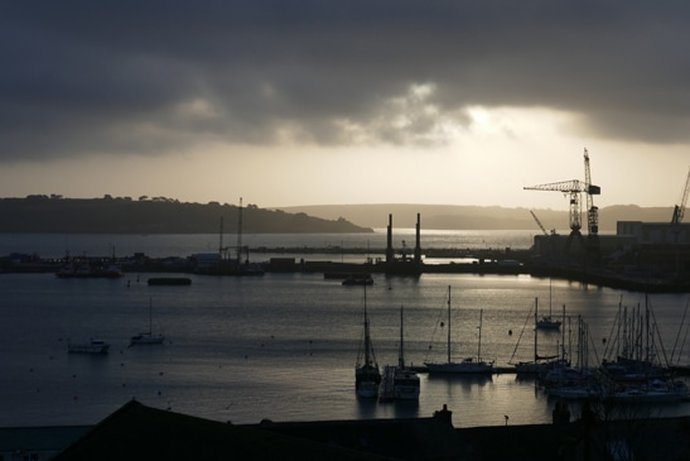So this was an ex-leader of the "Nasty Party", a man once described by a rival as having "something of the night about him", calling for resolve in the face of a draft EU document pointing out that Gibraltar's position would be distinct from the UK's in the forthcoming Brexit negotiations. Omitting the detail, because life is too short (and I've forgotten most of it), and not getting into why it was felt necessary to spell this out in a draft document, this is a statement of fact. Gibraltar is inside this and outside that, and blah blah, whatever, not the same as the UK. Various other politicians gave interviews over the weekend.
Monday's (and late Sunday's) news was full of Michael Howard's call to war. Tim Farron, leader of the de-facto parliamentary opposition in the UK, came up with this: “It is unbelievable that within a week of triggering article 50 there are conservatives already discussing potential wars with our European neighbours." There was widespread outrage, of the kind that fills valuable airtime and column inches in a voraciously round-the-clock news cycle. It was as if Jeremy Corbyn had come out in favour of the Trident nuclear deterrent and said that he'd use it on the rest of the Labour Party. We all kept very straight faces while taking jolly seriously the notion that Michael Howard's reference to the past could be taken as a reliable indicator of a likely future. Ceuta came into the story on Tuesday, by which time the Spanish were laughing the whole thing off.
We all need a story to emote over, don't we? And to fill airtime. Out of curiosity, I watched the interview on YouTube. Even the interviewer doesn't pick up the supposed reference to war. Mr Howard says his thing, and Sophy Ridge moves on to something else. I read some of the follow-up coverage, on paper as well as online, and was relieved to find that at least somebody - Channel 4 News - had asked the follow-up question. Was he really calling for war? "Of course not," said Michael Howard. Amazing how much space you can fill with a non-story, isn't it?
In other news...
Maybe the lesson of it all is that a mature democracy is more than just people voting - it's the system that keeps everything more or less stable regardless of how self-interestedly (or well-informedly, or credulously) people vote. Wednesday morning, Radio 4 brought the news, first, that Theresa May had suggested that free movement of EU citizens would continue for some time after Brexit, and secondly, that somebody on the EU side - forget who, sorry - had suggested that the UK would have to conform to EU regulations, just as it was doing now, to receive all the various privileges, et cetera, of EU membership even after it had ceased to be a member.
Brexit's going to be an anti-climax, isn't it? After so much hot air and emotion, it can hardly fail to be an anti-climax, I know, but I mean, even more of an anti-climax. Most likely outcome: stability is restored and the UK finds itself in a relationship with the EU that feels oddly familiar. And maybe the US system will turn up a fresh and credible alternative candidate in three rather than seven years. There are lessons to be drawn from the current catharsis in the US, but one of them is not: the system doesn't work. Let's hope that South Africa's relatively young democracy also passes the test its president has set for it.
And finally...
The US domestic agenda doesn't seem to be getting any less adhesive, but presidents have more freedom to act on foreign-policy issues, I believe. Can't decide whether to dig a nuclear shelter in the back garden, or to take my copy of Machiavelli's The Prince out to the deckchair, and start leafing through for something quotable on what it means for a leader to demonstrate (1) a willingness to act, and (2) a measure of unpredictability, and perhaps also (3) the range of character quirks that we've come to associate with Donald J Trump.
Although I don't suppose even Machiavelli would have foreseen...
Nuclear shelter it is.

